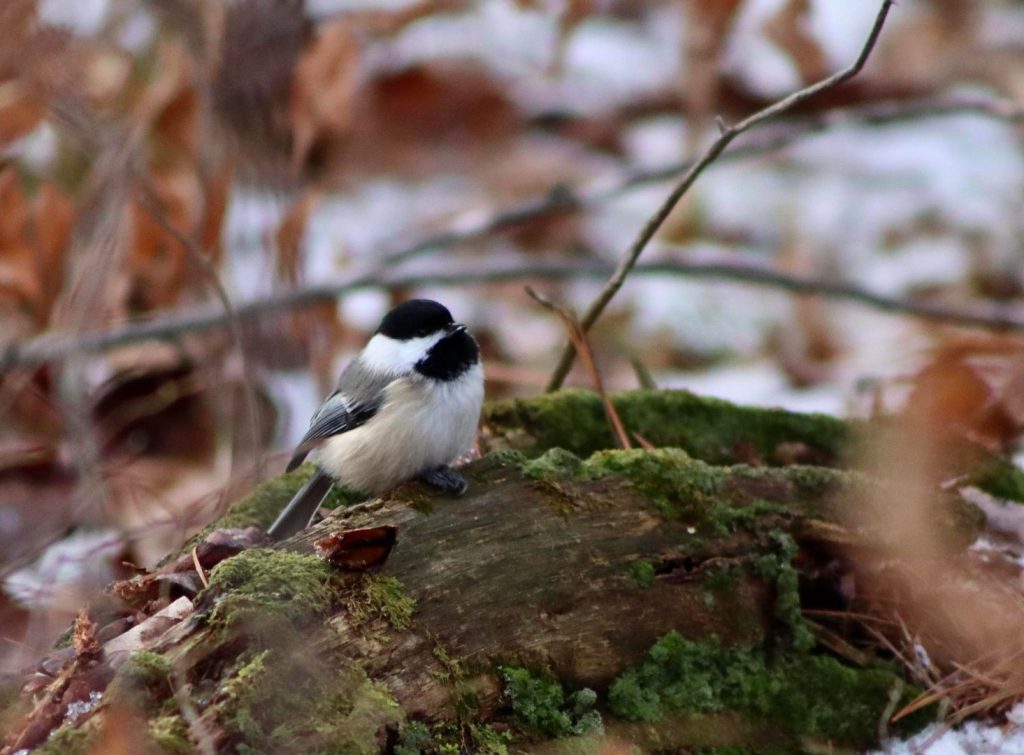Still Life With Chickadees

Courtesy of Mel Shaw
It’s almost four o’clock, and on this startlingly cold winter day, the sun is already sinking towards the western hills. When I carry my steaming tea, in my favourite pink mug, towards the dining room couch I am savouring simplicity.
My great pleasure will be spending time with one of the five black, grey and white chickadees, likely a family, who frequent my main bird feeder. Although they are fluffed against the cold, as I settle down to watch, I think their true body size might not be much larger than a walnut.
To be given this oh so precious time. For all my grown-up years, I always was rushing between several things at once, and forever feeling guilty about my inadequacy. Oddly, now in my later years, at last I have been given the gift of time.
And so, my intention is to be fully present. When I was ten, I read Len Howard’s Birds as Individuals and learned from him how much pleasure there is in observing birds, rather than counting them, and I’ve been happiest with that approach ever since.
The particular chickadee I settle on observing under my window, so full of vitality on such a bitter day, is picking with her neat beak among the dried hydrangea blossoms. (Remember, these small beings can see with eight times the magnitude we can. They search out the tiniest of spiders.) Dropping down momentarily, she snags a single fallen sunflower seed and then returns to her shrub to split it open and remove the meat. (So often these days, it is the small things I am relishing.) Even resting, she is swivelling her black head, darting her bright eyes. But wait. Perhaps sent into a torpor by the bright sun, she rests. Utterly gathered in her bright being, my heart rests too.
The fast-sinking sun is giving a new blueness to the snow. The larger birds, the blue jays, mourning doves and assorted woodpeckers, and even the nuthatch pair, have already slipped off for the night to the nearby sheltering evergreens. But the smaller species, the chickadees, unable to sustain their fast through such a long winter night, are still dipping and diving, or the juncos, are puffed and hunched under the fat feeder basket, searching for crumbs.
Then, just like that, throwing up one last blaze, the sun has disappeared behind the giant basswood, heading down towards the nearby lake. I turn my head, and within that minute the last of the small birds have disappeared.
All rest. I rise, set my empty teacup in the sink and turn to refill my woodstove against the coming cold.
Blessed be.